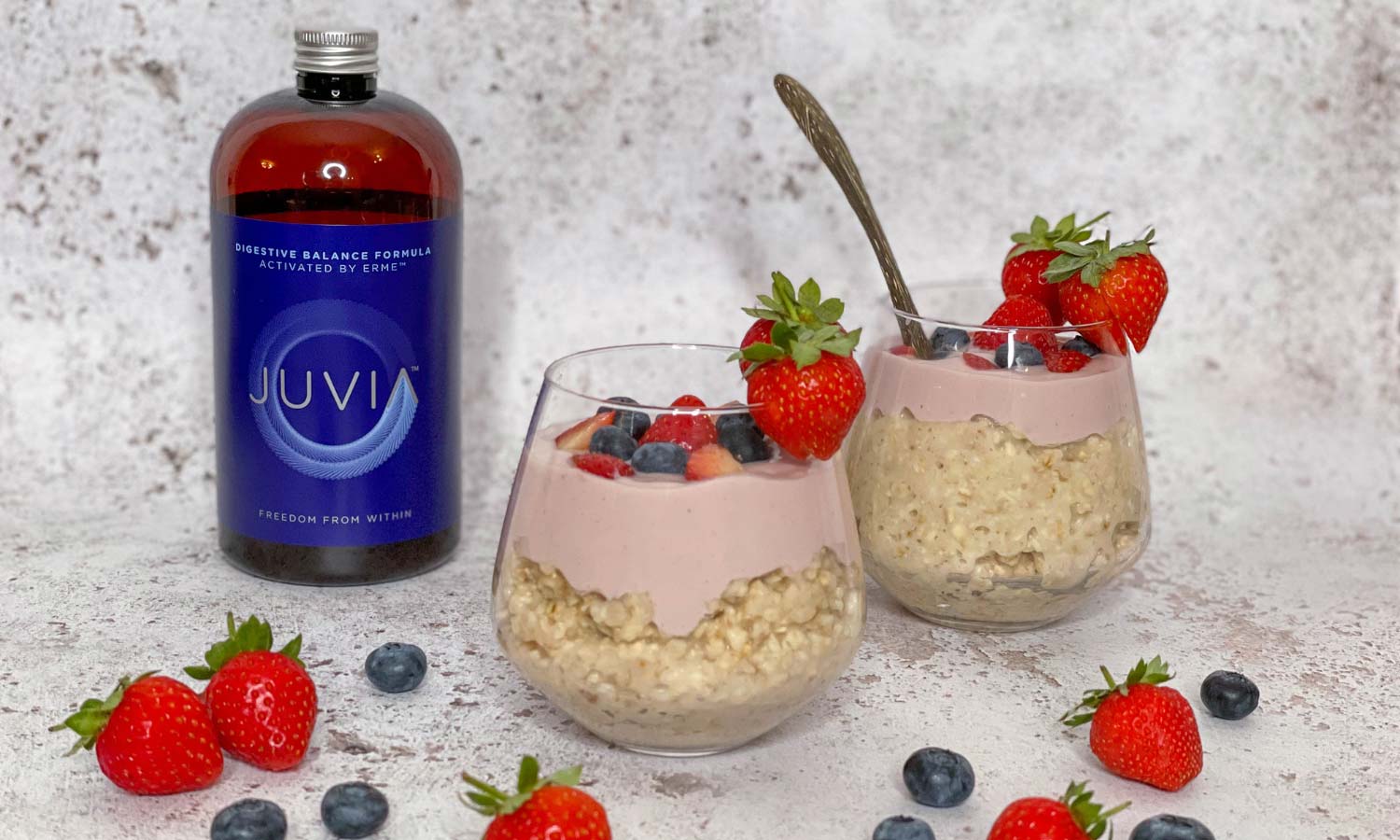We strongly believe that a healthy gut is essential for a healthier and happier life. We also believe that people shouldn’t have to restrict their diets, even if they have gut issues.
If you’re on a low FODMAP diet, JUVIA will be fine to take. However, you may find that you no longer need the diet after your gut is rebalanced. Our product has undergone 14 studies over the past decade, showing numerous benefits for the gut.
WHAT EXACTLY IS FODMAP AND WHO IS IT FOR?
People most commonly go on a low FODMAP diet when they experience symptoms of Irritable Bowel Syndrome (IBS), a common gastrointestinal disorder.
FODMAP stands for Fermentable Oligosaccharides, Disaccharides, Monosaccharides, and Polyols, which are types of carbohydrates that are poorly absorbed in the small intestine and can be fermented by the gut bacteria in the large intestine. This fermentation process can lead to the production of gas, causing bloating, flatulence, abdominal pain, diarrhoea or constipation.
The diet involves restricting or eliminating high FODMAP foods such as wheat, garlic, onions, legumes, some fruits and vegetables, and dairy products. Instead, the diet focuses on low FODMAP foods such as meat, fish, eggs, rice, potatoes, and some fruits and vegetables.
It is important to note that a low FODMAP diet should not be used as a long-term solution, as it can lead to nutrient deficiencies and imbalances in the gut microbiome.
RELATED BLOG POSTS
-

HIGH FODMAP FOODS TO AVOID
LEARN MORE -

OVERNIGHT OATS - FODMAP BREAKFAST
LEARN MORE -

NAVIGATING IBS WITH A FODMAP DIET
LEARN MORE -

3 EASY LOW FODMAP RECIPES FOR VEGANUARY
LEARN MORE






